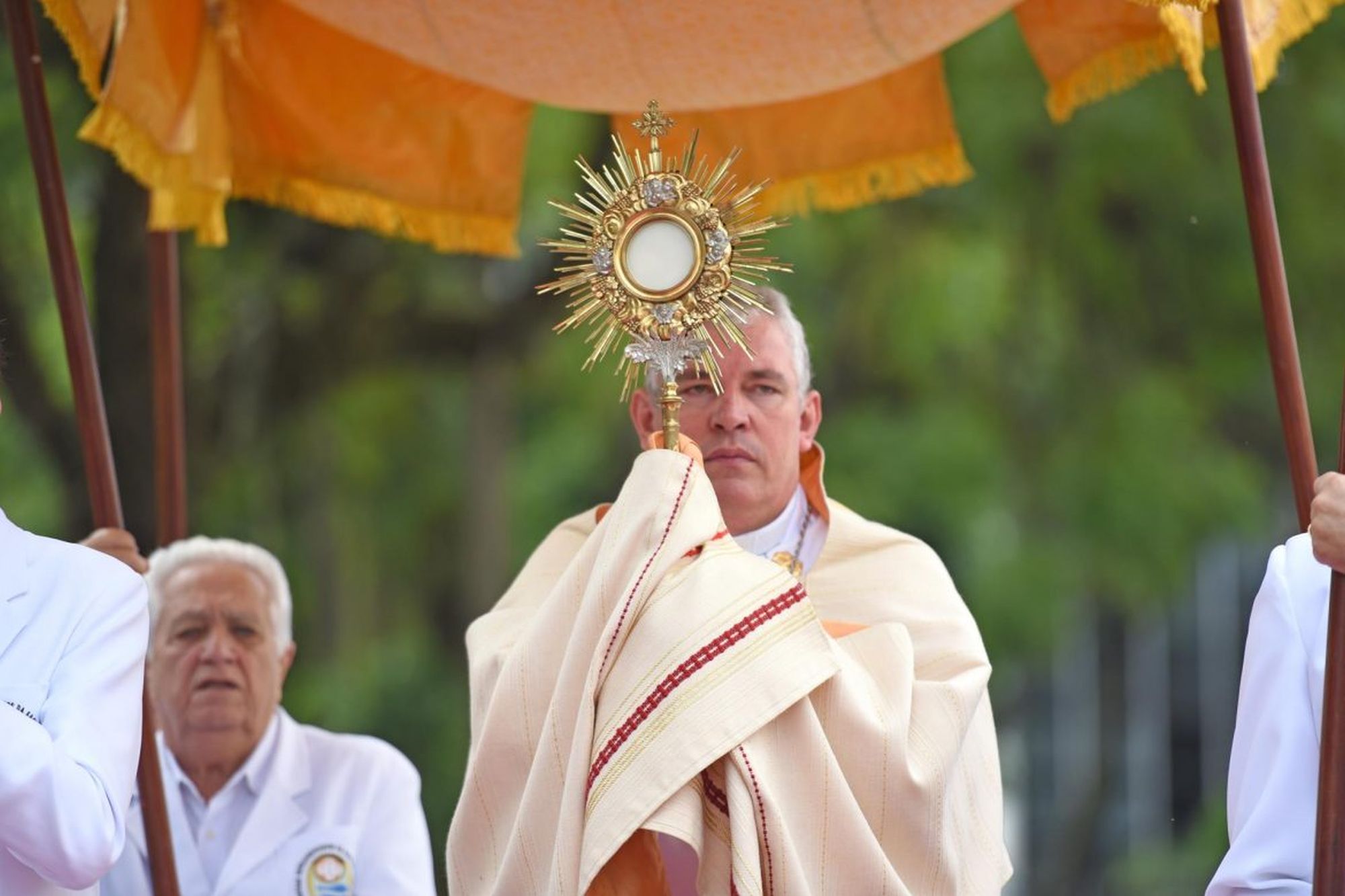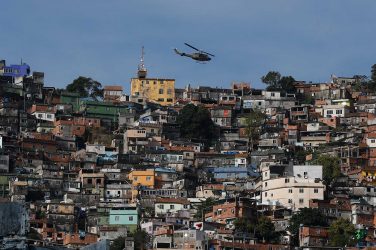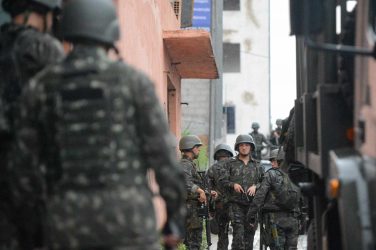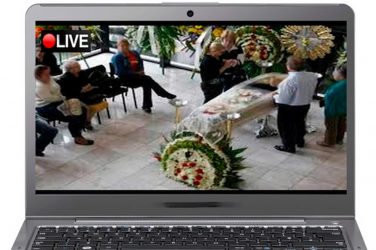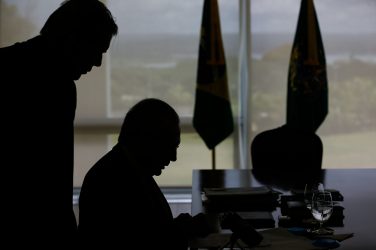Demonstrations in Bolivia in recent weeks have been directed at a seemingly unusual target: the Catholic Church.
More than three-fourths of the people in this Andean nation are Catholic, and Catholicism remained the religion of the state until 2009. Protests erupted, however, after the publication of diary entries from a deceased Spanish Jesuit priest, which detailed his sexual abuse of dozens of boys while teaching in the Bolivian city of Cochabamba during the 1970s and 1980s.
Meanwhile, in neighboring Brazil, a new book by two award-winning journalists has made the magnitude of the clerical sexual abuse crisis more visible.
Over the past two decades, sexual abuse scandals have rocked the Catholic Church nearly everywhere it has a presence. Latin America, where 4 in 10 of the world’s Catholics live, is no exception. Yet the church’s role in the region is distinct, as are the stakes.
Owing to centuries of Spanish and Portuguese colonization, the Catholic Church is deeply ingrained in Latin America’s societies and political institutions – a key theme in my research on 20th-century Peru.
High-profile cases have stirred public outrage in nearly all Latin American countries, notably Mexico, Peru and Chile, but concrete changes have been slow. The current circumstances in Brazil and Bolivia, I argue, could signal a new trend.
A surge of anger in Bolivia
In May 2023, hundreds of protesters gathered outside of an imposing art deco basilica in La Paz. Two men carried a mannequin dressed as a priest hanging by its neck with a placard reading, “Cura pillada, cura lynchada” – “A priest caught is a priest lynched.”
Another demonstrator struggled against counterprotesters to spray-paint “Rapist” on the doors of the church. Similar demonstrations were seen throughout the country.
The anger was sparked following reporting from the Spanish newspaper El País, which gained access to the diary of the Spanish priest in Cochabamba, Rev. Alfonso Pedrajas, as part of an investigative project on sexual abuse by the clergy in Spain. The document had been in the Madrid attic of Pedrajas’ brother until the priest’s nephew came across it in 2021.
Pedrajas’ diary relates abuses he committed at a Catholic boys school in Cochabamba, where he worked for 17 years. By his own account, at least 85 boys suffered abuse, some as young as 12, and many who told other adults about his actions were expelled, according to El País.
The diary also reveals church leaders’ cover-up over the decades. Pedrajas was even removed from his teaching position in 1983 after a group of students reported the priest’s abuses to the school’s director and was sent to work as a miner in western Bolivia. A year later, he was back.
In all, El País investigators have identified over 20 periods between 1978 and 2008 when Pedrajas’ crimes were actively covered up by others in the church hierarchy.
Once the diary was made public in April 2023, survivors started coming forward. At least 12 have come together to file a legal case.
The crisis in Bolivia has taken on a political tone, the latest manifestation of an ongoing culture war over the role of religion in society. As seen throughout the history of Latin American republics, conflict usually follows when progressive governments speak out against the church. Bolivia’s turn toward a more secular state under leftist presidents Evo Morales and Luis Arce are some of the latest examples of this process.
In May, President Arce wrote a letter to Pope Francis, asserting that his government will impose more restrictions on foreign priests and demanding that the Vatican make relevant records available for Bolivian investigations. Since then, Arce has established a commission meant to more thoroughly investigate and punish cases of clerical sexual abuse.
Meanwhile, a group of alumni of the school where Pedrajas committed so many abuses has put forth suggestions to bring about substantive change.
Brazil: Turn toward transparency?
Brazil has more Catholics than other country – some 120 million – making the nation’s church a powerful institution both at home and globally. Yet Catholic leaders there are also facing competition from rapid growth in evangelical churches and Afro Brazilian traditions.
In May 2023, journalists Giampaolo Morgado Braga and Fábio Gusmão published a groundbreaking study called Pedophilia in the Church after reviewing over 25,000 pages of documents about allegations in Brazil. Their book aims to correct what its authors argue has been a severe lack of public concern over a decades long crisis.
Though their findings bring together details of abuse by the 108 priests and other Catholic leaders who have faced legal charges in Brazil since 2000, they conclude that these numbers barely scratch the surface of the total instances of abuse.
However, recent cases may suggest a turn toward greater transparency and more effective collaboration between the church and the legal system.
On May 3, 2023, after an extended investigation called Operation False Prophet, state police detained Dominican friar Elvécio de Jesus Carrara on suspicion of producing and storing pornographic photos of teenagers. According to local reporting, the Dominican order appears to have promptly collaborated with police on the investigation. Meanwhile, they ensured Carrara was removed from priestly duties.
In 2019, the national bishops conference worked with the Vatican to publish a guide titled The Pastoral Care for Victims of Sexual Abuse, and a Brazilian priest trained in youth rehabilitation is a member of the pope’s advisory committee on the abuse crisis.
Chance to lead the way
Given the number of Catholics living in Latin America, it is clear that the majority of cases have yet to be uncovered – work that will require collaboration between lay Catholics and members of the church hierarchy.
Four of the 19 members of the Pontifical Commission on the Protection of Minors, an advisory body that Pope Francis established in 2014 in response to the abuse crisis, come from Latin America, underscoring the Vatican’s commitment to the region.
Within Latin America, there have been encouraging signs of international collaboration. The Mexico-based Center for Interdisciplinary Investigation and Formation for the protection of Minors has begun to provide training and resources for Catholic institutions throughout Latin America to handle past cases of abuse and avoid them in the future.
While clerical sexual abuse has generated public awareness in the region since the early 2000s, I believe the events unfolding in Brazil and Bolivia signal a new period of reckoning.
Matthew Casey-Pariseault is an associate clinical professor of History at Arizona State University
This article was originally published in The Conversation. Read the original article here: https://theconversation.com/events-in-bolivia-and-brazil-may-signal-a-turning-point-for-the-catholic-churchs-sexual-abuse-crisis-in-latin-america-207292


